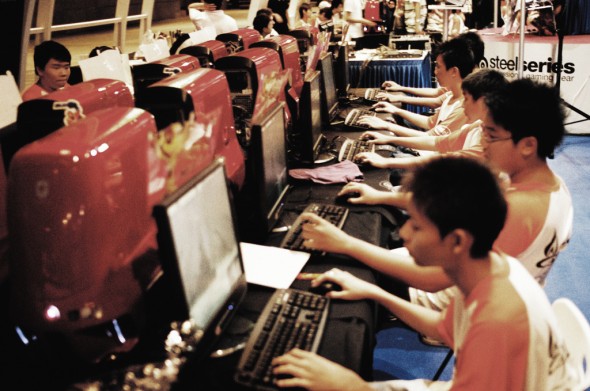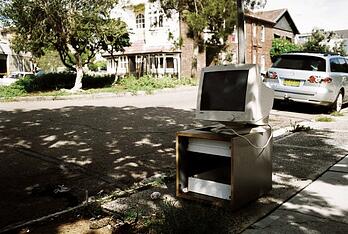
It seems fashionable lately for hard boiled tech types to talk about consumers with a wide eyed fervor bordering on the frightening. And even worse, they have even come up with a new word to assault the language - Consumerization. Hype aside, what the trend really means is this: enterprise technology is being increasingly driven by the platform and device choices of everyday consumers. Rest assured, this is more than just your employees spending time accessing Facebook when they should be working. The changing role of IT is part of a much bigger shift in the nature of the Web. Applications are being replaced by platforms, and software by the Cloud - and that ultimately means a change in the way we work and, as organisations, create value for our customers.
If you are in a business that regularly deals with consumers, you might find it strange that it is only recently that IT departments have discovered their importance. But in a way, it is not their fault. First you have to understand the way that enterprise systems are bought and sold. The main difference between enterprise and consumer facing technology has to do with accountability. Enterprise software has traditionally been sold to a handful of decision makers in an organisation who commit to platform on behalf of thousands of users. Consumer platforms live or die by whether or not their actual customers - end users - love them or hate them. That is why Apple's best marketing is not its advertisements, but its products.
Try this experiment. Get someone to print out some web pages of a few large software vendors and black out references to their company name. Now I challenge you to discern from the print outs either the name of the company, or even the product category they are in. Welcome to solution selling! Enterprise software is about pitching your platform as an comprehensive integrated solution to a company’s every need. In reality, what you are actually get once you sign off on the purchase order is a proprietary set of tools that will trigger off years of complicated and expensive integration work with existing legacy systems.
The good news is that the model is changing. The bad news is the forces of change are largely out of the control of IT managers. End users are increasingly bringing their own gadgets to work, and demanding that enterprise systems can interface with it. According to a recent study by IDC for Unisys, 95% of information workers use technology for work that they purchased themselves. It started with mobile phones, then it become smart devices like iPads, and then video conferences tools like Skype, networking tools like Linkedin, filesharing services like Box.net and Dropbox - and now even Facebook (for legitimate marketing purposes, naturally).
These changing patterns of consumer behaviour will have a disruptive impact on the enterprise software space. Eric Schmidt at the D9 conference observed that the world was coming down to a war between four major platforms - Amazon, Google, Facebook and Apple. Five years ago, it would hard to conceive of any of those companies playing a major role in corporate technology - and now, whether it be Amazon's cloud hosting services, Google enterprise apps, Facebook's brand platforms or Apple's smart devices - it is hard to imagine working without them. But there are other key players to watch too. IBM, having just celebrated its 100th birthday, has proved that you can thrive as an smart integrator of technologies without necessarily controlling your own platform. And Microsoft, with its new shift to Cloud based software services - will be an important player to watch as the mainstream technology space embraces consumerization trends.
However in the short term, the biggest beneficiaries are likely to be small to medium businesses. I recently wrote a blog post on the Cloud Nine - simple web based software tools that allow smaller organisations to deploy the kind of technology traditionally only available to companies with million dollar IT budgets. Nimble web centric companies and freelancers have already discovered what large organisations are struggling to learn - the power of Cloud based tools to connect with your customers and staff, and to soft scale your technology needs as required rather than investing in your own expensive hardware and software implementations.
So what is the future role of your CIO in the Consumerization Nation? Yesterday's CIO was defender of the realm - hired to repel security threats to the enterprise, stand fast against unnecessary capital expenditures, and hand out shiny gadgets to authorized corner office executives. Tomorrow's technology leaders will need very difficult skills. They will have the critical role of navigating a new IT ecosystem where it will be less important to buy and build your own technology - and more essential to know how to nurture a valuable ecosystem of developers and service providers and unlock the real value of consumer data within the enterprise.



